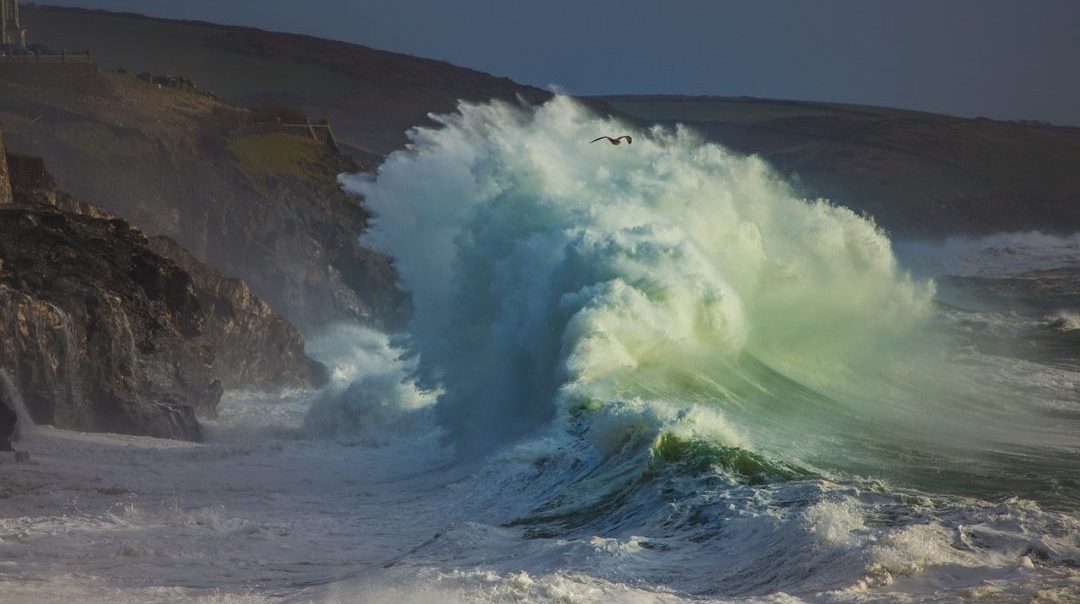The West Coast is no stranger to natural disasters. I was 4 years old when our chandelier began to sway like a playground swing at recess. Time stopped as the earth rocked and rolled beneath our feet.
We had just moved to Southern California; none of us knew what to do except hang on for dear life.
Living through Disaster
Growing up in Orange County, California, I remember seeing the glow of wildfires consuming the surrounding beautifully landscaped hills. It was sometimes weeks before we stopped smelling like smoke and wiping ashes off our cars.
In addition to earthquakes and wildfires, the mudslides were awful. Some of our friends experienced their homes being ripped in half—the front part left perfectly intact, while the backside was torn off and taken away by mud.
Living on the West Coast means one accepts the beauty along with the possibility of total devastation.
I recently watched the Thomas fire devour more acreage than any other fire in California’s recorded history and was reminded how awful natural disasters can be. The worst part of the Thomas fire came after it was contained and almost extinguished.
The burnt, root-bare terrain didn’t stand a chance of staying put for very long in the horrific mudslides.
As we saw, in a matter of seconds, boulders tumbled into living rooms and mud washed a neighborhood off its foundations. The once exclusively quaint, seaside Santa Barbara county was devastated. The wreckage swallowed up lives and land without warning.
Perspective through Disaster
Disasters have a way of leveling the playing field of life. In an instant, all earthly possessions are ripped from the rich and famous and the poor and lonely alike.
Does anyone really care about social status when his or her whole neighborhood goes up in smoke, shakes to the ground, or slides into the sea? In an instant, we are given 20/20 vision on what we value most.
Typically, those who value possessions more than people are most blindsided by devastating forces of nature. Disasters strip us down to bare bones faster than anything I can think of.
In the aftermath, people tend to be quite reflective. Having lived in Montecito while attending Westmont College, the scenes portrayed in the news are so real to me.
I know those places that were destroyed. I’ve been to that shopping center, worked in one of those coastal shops, eaten in those hillside cafés. They will rebuild, but natural disasters remain part of life on the West Coast.
There’s another kind of disaster all human beings must contend with. By nature, our sinful condition is a disaster in waiting. Sometimes we are one choice away from losing it all.
I’m not talking about losing possessions; I’m talking about losing something far more valuable. That is, losing our perspective on what is of eternal value.
Unless we are firmly rooted to Christ and His truths, the force of our fleshly nature will inevitably lead to disaster. We’ll be swept away by the insatiable tide of selfishness and pride.
We’ll live unfulfilled, believing one more thing will satisfy . . . then one more . . . and one more . . . until we’re eaten up, lonely, bitter, having destroyed ourselves and those around us.
The only way to survive is to have our soul firmly, deeply fixed to Jesus Christ. He is all-powerful. He controls all nature. He is the only anchor strong enough to hold us in a churning sea.

The Lifeline
His truth is our lifeline. Come what may, when His Word is planted in our hearts and we have placed our trust in Him, we are unshakable.
Just like we practice lifesaving techniques for natural disasters, there are spiritual practices we must do that strengthen our resolve for inevitable days of trouble.
Scripture is packed with truths to live by.
I’ve chosen some from Proverbs 3 to put into action each day. Think of these as soul-drills—practices that sustain us in the day of adversity:
- Proverbs 3:1: Saturate your heart and mind with God’s truths. Memorize Scripture so it’s the first thing that comes to mind when disasters hit. Scripture keeps us from being afraid or acting on impulse.
- Proverbs 3:3: Practice kindness and faithfulness (some translations say loyalty). These qualities keep us firmly established, steadfast, unwavering, and devoted. Amid hardship, choosing to be kind and faithful will keep us stable when the storms rage on.
- Proverbs 3:5–6: Put full trust in God and depend upon Him always. Seek His will above all things. He will always show you the way to go as you depend on Him.
- Proverbs 3:7: Practice humility; don’t have a know-it-all mentality.
- Proverbs 3:7: RUN from evil. Ask the Lord to help you see where evil may be lurking and run from it in every way. Don’t mess with the Enemy; he’ll take you down.
- Proverbs 3:11–12: Embrace the Lord’s discipline. No one likes pain but if you are to be firmly established, allow the Lord’s discipline to transform your heart and mind. Instead of blaming or becoming angry, trust Him through the pain. Learn to endure well.
- Proverbs 3:25: Don’t fear disasters. By seeking wisdom, you will have peace, direction, and security amid the unexpected.
- Proverbs 3:27–30: Honor and serve others. Purpose to bring peace to every situation.
Let Me Hear from You
Natural disasters remind us that we are not in control. God is. Throughout life, we will encounter challenges—a fact as certain as earthquakes and mudslides on the West Coast.
But we are not left without hope or help. Practice these things in the days ahead and you’ll find strength and peace regardless of your circumstances.
What one or two things can you begin to do today that will keep you unshakable?
You can leave a comment by clicking here.
